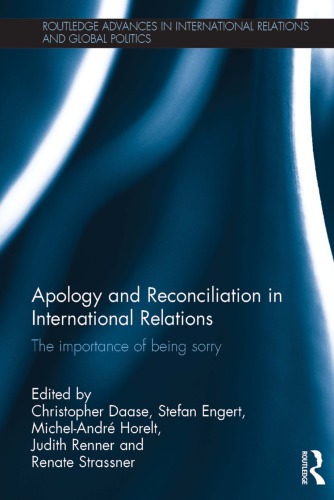

Most ebook files are in PDF format, so you can easily read them using various software such as Foxit Reader or directly on the Google Chrome browser.
Some ebook files are released by publishers in other formats such as .awz, .mobi, .epub, .fb2, etc. You may need to install specific software to read these formats on mobile/PC, such as Calibre.
Please read the tutorial at this link: https://ebookbell.com/faq
We offer FREE conversion to the popular formats you request; however, this may take some time. Therefore, right after payment, please email us, and we will try to provide the service as quickly as possible.
For some exceptional file formats or broken links (if any), please refrain from opening any disputes. Instead, email us first, and we will try to assist within a maximum of 6 hours.
EbookBell Team

5.0
78 reviewsIn recent years, we have witnessed an unseen popularity of apologies, with numerous politicians, managers and clergymen being eager to apologise and atone for the wrong-doings of their countries or institutions. Public apologies, thus, are a new and highly interesting, while nevertheless still puzzling phenomenon, the precise role and meaning of which in international politics remains to be explored. This book sets out to do exactly this. Focusing in particular on state apologies, it assembles twelve detailed empirical case studies which deal with the two questions raised above. In the first part, the case studies reconstruct the processes in which state representatives react to calls for public atonement, and in the second part the case studies explore the reactions to the apology and evaluate signs for its success or failure.
All case studies are based on a theoretical framework which is outlined in the introduction to the book and helps develop tentative assumptions about the emergence and the effects of state apologies, drawing on different strands of literature, such as political science, philosophy, sociology or psychology. This work will be of great interest to students and scholars of conflict reconciliation, international relations and transitional justice.